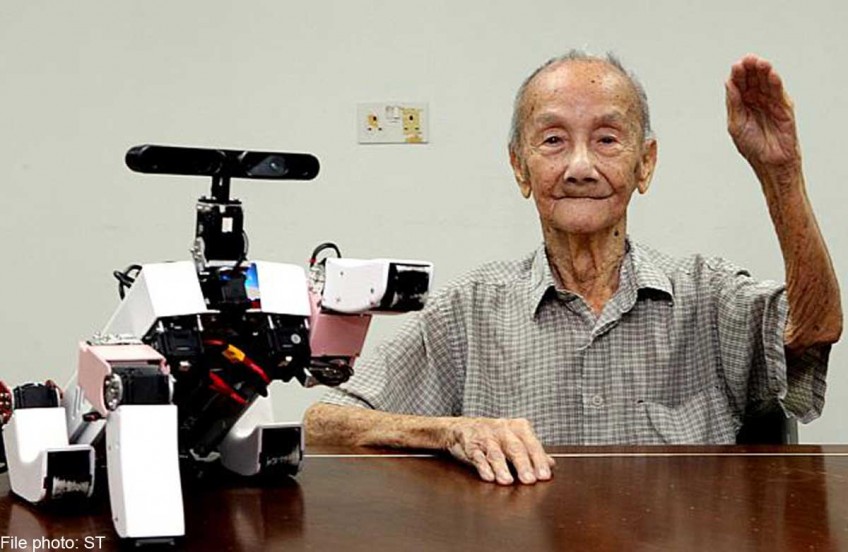Designing products, services with the elderly in mind

Frail, helpless, technologically inept - these are some stereotypes of the elderly.
But a group of researchers who shadowed 20 people aged 55 to 77 for a day found that some of them were actually very active, involving themselves in theatre groups or surfing the Internet daily.
Others were determined to exercise and recover from their injuries, despite the pain. "Their resilience really surprised me," said Mr Jeremy Sun, design director at Orcadesign, who helped to plan the research. "Some of them were dependent, but others were tough. They want to maintain an active life and not be a burden to their kids," he said.
The researchers had shadowed the participants for a three-day workshop starting yesterday which was attended by 70 health-care professionals, technology experts and designers to create apps and services for an ageing population.
Led by DesignSingapore Council, the workshop creates a platform for designing "user-centric, empathetic" services for the elderly, said Mr Jacks Yeo, its director of market development and strategic planning.
The elderly participants were classified into 12 broad profiles, including "the link" (one who is a social connector in his community) and "the enclosed" (one who shies away from human interaction). Then, there are others such as "the adaptor" (one who actively adapts to his disability using technology) and "the dependent" (one who is resigned to his disability and seeks external help).
"These profiles give us a good idea of the spectrum of the elderly we may be designing for," said Dr Chow Mun Hong, director of Innovation and Quality Management at SingHealth. "We might plan services based on operational efficiency, but this is a good reminder to take a user-centric perspective," he said.
Some elderly citizens, for instance, may gain satisfaction from keeping tabs on their health through self-monitoring devices. For others, their caregivers may want to use remote monitoring technologies instead.
In another example, workshop facilitator Ryan Chen spoke of an elderly man who had agreed to take part in a trial where sensors were mounted in his home, so that health-care workers get alerts when he is inactive for a period. But the man ended up avoiding these sensors as they felt unfamiliar, said Mr Chen, a partner at design firm SupraCopula. "The sensors felt impersonal, he might have wanted a feedback system to talk to someone," he said. "Design counts," he added.
The participants hope the workshop will yield new products and services that may be taken to a prototyping stage by April.
kashc@sph.com.sg

This article was first published on February 3, 2015.
Get a copy of The Straits Times or go to straitstimes.com for more stories.